#20. Graphene
The long list of incredible features by Graphene makes it seem almost mystical, but it could have very real significant implications for the future of physics and engineering.The easiest way to describe graphene is that it's a single, thin graphite layer, which also turns out to be smooth, and it's also the material used in the pencil lead. One of the most notable facts about graphene is that it's 100 times stronger than steel. As you might imagine, it's one of the strongest materials in the known universe.


In addition to its powerful electrical properties, graphene is also highly flexible and transparent. These properties make it attractive to use in portable devices such as smartphones, tablets, and wearables. Using graphene would stand a tremendous chance to make the object more durable and perhaps could even be folded up like paper.
#19. Foldable Phones
As we have recently mentioned before, graphene and foldable phones go hand in hand. After the failed attempt to hit the market last year, foldable phones have finally made their presence felt in the world of smartphones. In February, two foldable devices have hit store shelves: Motorola's re-imagined Razr and the Galaxy Z Flip. And you know what? We have the impression that over the whole year, more will come.
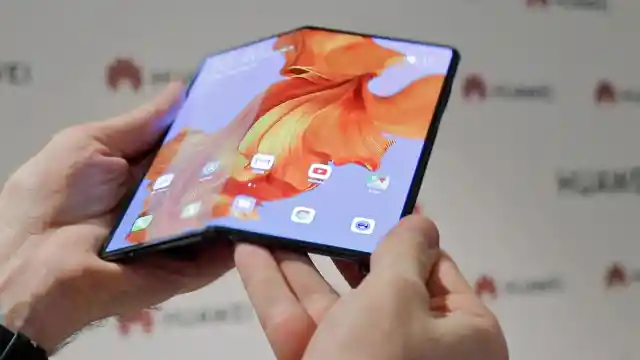
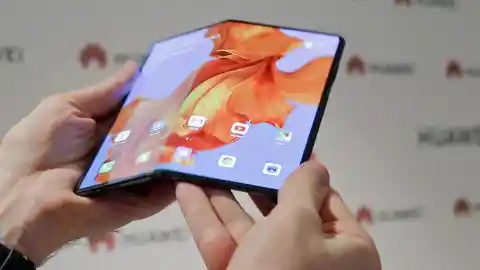
The appealing of foldable phones is obvious: you get the power of a big screen and a productivity-boosting effect for the customer. Also, being foldable adds the portability feature, making it more attractive. Recent leaks suggest that graphene will supercharge future Samsung phone batteries, making the phone capable of a full charge in under a half-hour.
#18. Holograms
Every Star Wars fan is waiting for this technology to become more accessible. Since Episode V: The Empire Strikes Back, we are waiting to have a gadget just like the one Princess Leia used to transmit her message to General Kenobi. And guess what? At CES 2018, some of the most impressive showcases were delivered. Luckily, we had the pleasure to admire some of the companies that have already been using this technology


A company named Hypervsn has shown some advanced holograms generated on fans by LED lights, but it is vital to remember that they are not real holograms. Yet the new technology doesn't seem far away, so in the next few years, we may not even need physical displays.
#17. Charging Your Phone Won't Be An Issue
You know what it's like when you need to make that all-important call when you're out shopping or when your car breaks down, and instantly the battery on your mobile has drained. Charging technology is becoming quite impressive, and given the smartphone industry's fast-moving speed, it's not that insane to think that within the next few years, we might not even have to charge our phones at all.


There are all kinds of things companies try to do, from solar-powered phones to kinetic devices that charge using the movement of the human body. Hydrogen cells have also been recommended, and the key is that charging our smartphones' batteries will be much easier shortly, to the point t hat we may not even have to do it any longer.
#16. Scanning Ears Instead Of Fingerprints
Passwords can turn your head in a real mess. Or, rather, people kind of suck at passwords. Even after the large number of cyber-attacks people have witnessed in recent years, the most commonly used password in 2020 is “123456." That's why this technology could be a game-changer.


A fingerprint scanner, or facial recognition, is the norm on most flagship phones. Still, the future could be a lot safer and more exciting. One method involves inspecting a person's ears because all of our ear cavities are unique and different in shape. As you might see, this procedure would be very difficult to fake.
#15. Advanced Robotics
Robotics is the convergence of science, engineering, and technology. All of these disciplines make a joint effort to generate robots, which are capable of replicating human behavior and actions. Pop culture has always been fascinated by robots. To name just a few, R2-D2, Optimus Prime and WALL-E. Nowadays, robots are developing mental and mechanical skills, which make us believe that we won't have to wait long to possess an R2-D2-like machine.


As technology progresses, so too does the scope of what is considered robotics. In a few years' time, robots will enter the workforce in a meaningful way, taking on positions that range from assembly lines up to surgery on a patient.
#14. Genetic Engineering
Genetic engineering is the process of using technology to change the genetic makeup of an organism. It's a fast-growing technology of immense future. Currently, bacteria have been developed by recombinant DNA techniques to be competent in synthesizing human insulin, human growth hormone, alpha interferon, hepatitis B vaccine, and other medically useful substances.


Some claim that with genetic engineering, we might be able to eradicate diseases, to develop genetically modified humans that never age, or even to design a new life. Surprising things which used to be science fiction are suddenly starting to become reality. The only thing we know for sure is that things will change irreversibly. Although genetic engineering remains a somewhat controversial technology, it may lead to major breakthroughs like longer life spans. We have to wait and see how everything develops during the following years.
#13. Blockchain
Blockchain is the name of a whole new technology. As the name states, it is a sequence of blocks or groups of transactions that are chained together and distributed among the users. Basically, it acts as an unchanging record of transactions that do not need an external authority to verify the validity and legitimacy of the data. Usually, transactions are economical, but we can store any type of information in the blocks.


The Blockchain technology is in constant evolution. What makes this technology so powerful is that there is no need for an external or internal authority: each user relies on the technology itself to reach consensus and ensure the integrity and reliability of the data, following predefined rules. Some banks have been studying this technology to implement it in the current systems. It's just a matter of time before everyone starts adopting it.
#12. Quantum Computing
Quantum computing revolves around two concepts of quantum physics: superposition and entanglement. Superposition is like a spinning coin, and it's one of the things that makes quantum computers so powerful. A quantum computer is used to perform such computation, which can be implemented theoretically or physically. It's hard to predict how this technology can change our world, simply because applications will occur in all industries.
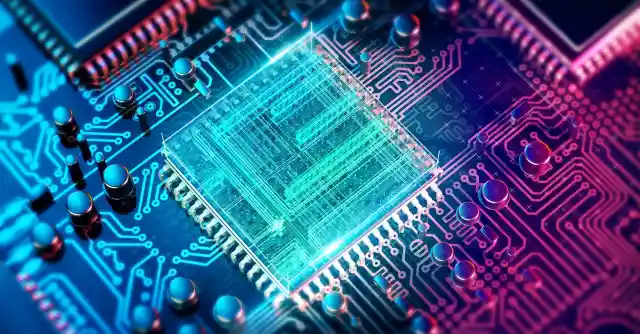
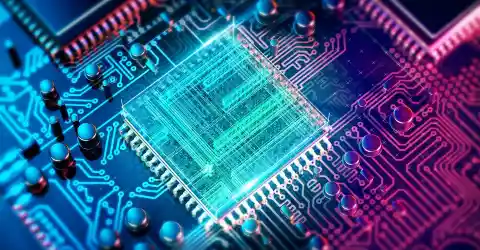
But if we take a guess, it would seem that quantum computers could encourage the development of breakthroughs in science, methods to diagnose illnesses sooner, materials to make more efficient structures, and algorithms to solve problems, which can't be addressed with traditional computing.
#11. Unlimited Data Storage
In the coming years, the cloud will become more and more popular. Local storage is quickly becoming a thing of the past, as more and more people realize that there is theoretically an endless amount of storage space on the public domain, rather than locally.
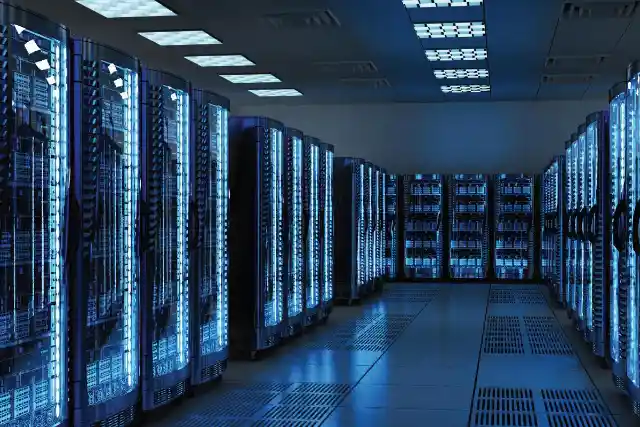
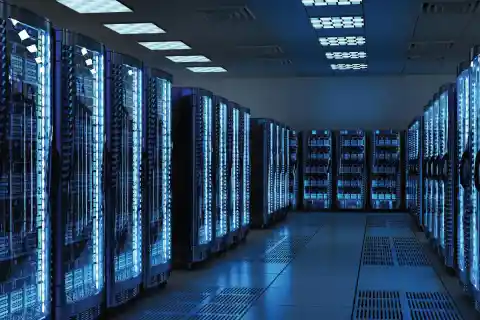
Although it has cost us money to store stuff on the cloud until very recently, the advantages of such a platform are clear. Businesses are starting to offer free storage space nowadays, and many people consider that storage space will eventually be offered for free, at an unlimited amount.
#10. The End Of Video Game Consoles
Such technologies as cloud-based systems could potentially spell the end for video game consoles or at least physical ones. Streaming video game services are already being discussed, but many of us still rely on the old faithful console that we can see, touch, and plug into games. And yet many specialists believe the latest consoles might be one of the lasts generations. How will it work for streaming video games?


Actually, you would sign up for a subscription and play your library games on Google Stadia, Playstation, Nintendo or even Xbox, similar to the Netlfix model. Cloud technology is becoming so sophisticated that even disadvantaged computers can manage the games, as all the data and hardware is stored digitally or on a server.
#9. 3D Printing
It's been a while since 3D printing has been around. But we believe that 3D printing has the potential to democratize the production of certain goods. As more and more people have access to the technology, more people are being able to influence 3D printing in its entirety.
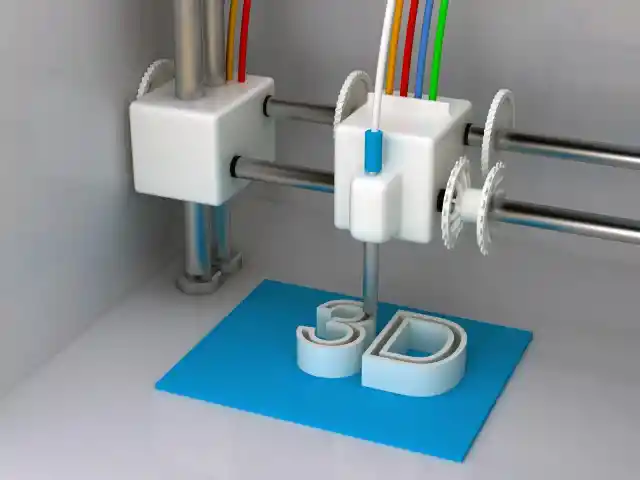
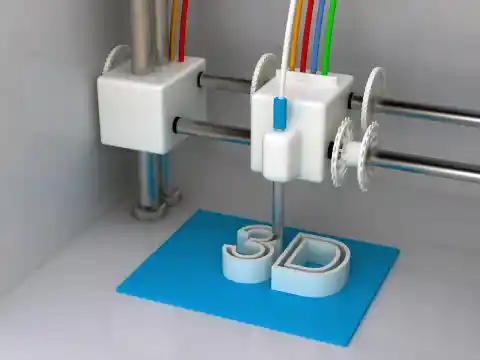
Besides, 3D printing democratization doesn't eliminate the conventional manufacturing of proprietary technologies. Instead, it will create new investment opportunities. In other words, what's exciting is the opportunities that distributed manufacturing can generate. Additionally, items like organs and other medical needs would be possible to print. It will really change our way of life, that's for sure!
#8. Internet Access Could Become A Human Right
Is the Internet so integrated with so many people's lives, serving as the key for the exchange of information, that refusing access to anyone in the world is a breach of human rights? That's what the UN believes. And so do we! The global use of the Internet has increased exponentially over the last few years, with billions of people connected and photos, emails, and stories exchanged.


Despite the billions of people accessing the Internet, there are parts of the world, preferably the developing countries, that still don't have access to the Internet. The Internet has ceased to be a privilege but now has become a requirement. We expect to see genuine attempts by world governments to supply Internet to every citizen on Earth in the short-term.
#7. Cars Will Change Forever
Back in the time, the vehicle production was one of the industries that most revolutionized our lifestyle? When the first automobiles were invented, the way we lived, the way we worked, and even the way we built our cities changed. We might not yet have flying cars, but the future of the car industry is truly promising.
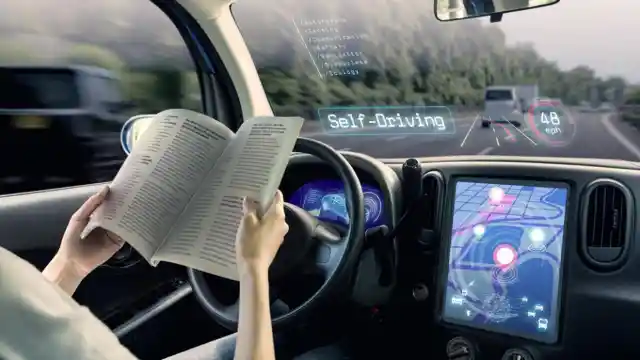
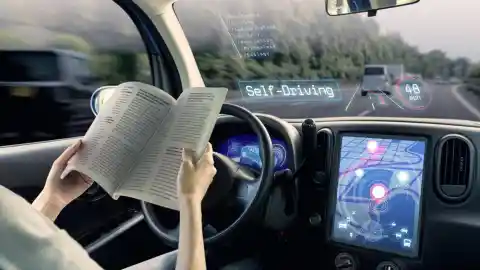
Self-driving cars are gradually becoming more popular, and soon we will all be letting machines drive for us. It's going to be a game-changer in the industry. We are reaching the point where autonomous vehicles are as good or better than human drivers, and companies such as Google, Tesla, and Uber each push the limits of creativity to dominate space.
#6. Artificial Intelligence
Remember those Hollywood science fiction movies that we watched during childhood, such as the one starred by Robin Williams where the robot, Andrew, was capable of understanding and compassion? These are two abilities only assumed to be attributed to human beings; however, Artificial Intelligence is the future, and as crazy as it may sound, the future could no longer be in our hands.


A.I. includes machine learning as well as deep learning, and you should know that there has been significant progress in both fields. Both of them are helping businesses evolve, Also, speech recognition, image-processing techniques, self-driving cars, and fingerprint patterns are taking the world by storm. As you might imagine, this astonishing technology has a great prospect ahead. It won't take long for us to know what the future beholds.
#5. Hyperloop
The hyperloop is one of the most innovative developments we will see over the next couple of years, and this is another of those ventures in which Elon Musk is really active. With no doubt, hyperloop is one of the futuristic projects which is most awaited. It is a high-speed train (up to 1,200 km / h) that will use magnetic levitation to travel through a vacuum tube, minimizing a journey that usually takes hours in a matter of minutes.
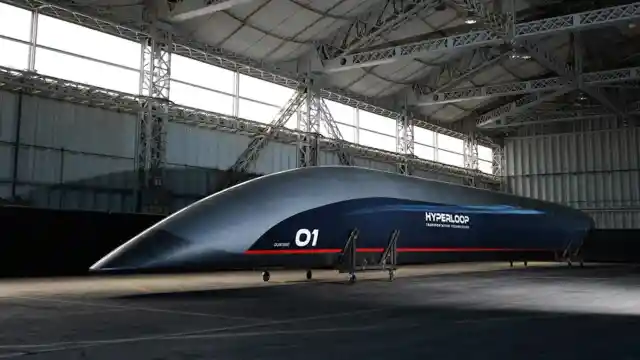

The quest for the "hyper-space" has just started and we will see the first real applications soon. Though this project won't be easy to complete, it's clear that those who want to develop it are taking it very seriously.
#4. Li-Fi
Most homes will have a broadband link, and many of those will also face connectivity or speed issues. But, what if there was a way to connect to the Internet at even higher speeds, and gain from a direct connection? That's why Li-Fi will soon be here to save our lives. Li-Fi stands for Light Fidelity and it's a Visible Light Communications (VLC) system that runs wireless communications that travel at very high speeds


For Li-Fi, the router is practically your light bulb. Using standard household LED light bulbs for data transmission, it boasts speeds of up to 224 Gbps. Li-Fi will also have a significant influence on the Internet of things because of its incredible speeds, with data being transmitted at even higher rates and more devices being capable of communicating with each other.
#3. Smart Windows
Smart windows, also known as smart glass, are a recent technology that allows the glass to adjust its properties when heat or electricity is applied. Although this effectively removes the need for blinds, it can also limit or even exceed the need for heating or air conditioning, especially when used in combination with other up-to-date architectural approaches.


Smart windows may play a part in our home improvement future, but the cost of transitioning from traditional passive solutions to a dynamic solution still needs fundamental shifts across the value chain. We may have to wait to see this technology emerge.
#2. Armored Exoskeletons
Another common aspect of sci-fi novels and films are the exoskeletons. Visions of power-armored warriors doing combat may not be a fantasy thing for a long time. Several companies are currently designing power-exoskeletons for worldwide military applications. For instance, Lockheed Martin.

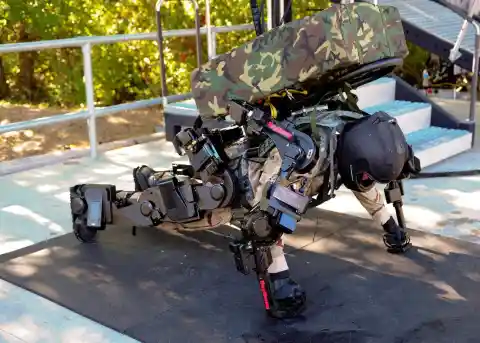
The benefits are simply a driven frame that allows the ability to hold heavier, longer-lasting body armors, and more resources too. Also, it can prevent injuries in the workplace. There are also signs of improved power for the wearer. It is only a matter of time before these suits become weaponized. Did you know that Ben Affleck was the first live-action Batman to incorporate an armored exoskeleton in his fight against Superman?
#1. New Ideas In Space Exploration
There are some exciting developments that we can expect will make noticeable progress soon, and what is more, some fascinating advancements are already happening in this field. SpaceX and other companies are now undertaking space exploration using new technology, such as green rockets, which can significantly reduce costs. How long will it be until space travel becomes a reality?


Elon Musk, CEO of SpaceX, revealed his intentions at the 2016 International Astronautical Congress to construct massive spaceships to reach Mars. Musk plans to launch at least two uncrewed cargo ships to Mars in 2022. The first missions will be used to search for water sources and develop a propellant plant. Well, get ready because we won't have to wait that long to make Mars a possibility.